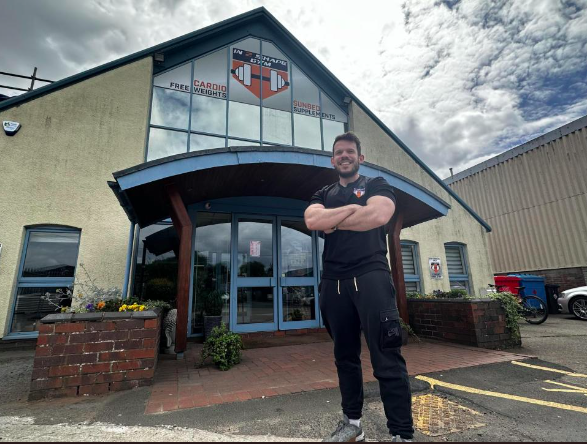Trending Stories
Amber Alert: UK Braces for Sweltering Heatwave with Temperatures Topping 30C

Amber Alert: UK Braces for Sweltering Heatwave with Temperatures Topping 30C
An escalated heat health warning has been issued for this weekend, anticipating extreme temperatures across the eastern and southern parts of England, along with the Midlands.
From a mellow yellow to a pressing amber, the increased alert level indicates a serious potential impact on public health and strains on health services.
The UK Health Security Agency (UKHSA), responsible for the warning, maintains the alert from 09:00 BST on Friday to the same time on Monday. These scorching temperatures, expected to reach a sizzling 30C, could also usher in some thunderstorms.
Regions of the UK are gearing up to outshine popular holiday destinations like Marbella, Ibiza, and Tenerife, as a surge of warm air journeys northwards from the south.
According to the Met Office, this wave of warmth will engulf vast swathes of the UK, turning up the thermostat and putting weather alerts into action.
Looking Out for Each Other in Heatwaves
With an amber alert in place, a less severe yellow alert also holds relevance for the north of England and London, reminding folks to keep a close watch on those who might be vulnerable in these conditions.
Predictions suggest a rapid rise in temperatures, with the mercury remaining high even throughout the night. As the weather heats up, the UKHSA recommends a few safety measures:
- Keep a check on loved ones and neighbors
- Familiarize yourself with the signs of heat exhaustion and heatstroke
- Take a siesta from the sun between 11:00 and 15:00
- Opt for cooler times of the day for exercise or dog walking
- Shut windows and curtains against sun-facing rooms
- Step out with suitable attire, including a hat and sunglasses, and don’t forget the sunscreen
- Hydrate sufficiently and go easy on alcoholic beverages
Impact on Health Services and Precautionary Measures
While the exact impacts of such weather extremes on health services are hard to determine, additional pressure is expected from vulnerable groups such as individuals over 65, children, and those with pre-existing health conditions.
Ahead of this scorching weather episode, the UKHSA is proactively offering guidance to groups working with older individuals, like care homes.
Fire Safety in Hot Conditions
As the heat wave looms, authorities urge extra vigilance to avoid fire-related accidents. Andy Cole, the assistant chief fire officer from Dorset and Wiltshire Fire Service, particularly warned against the use of disposable barbecues or starting campfires.
With an alarming 400% increase in wildfires observed in Dorset and Wiltshire last year, caution cannot be overstressed.
Heatwaves – The New Norm?
Climate change is transforming the UK’s weather patterns, making heatwaves more frequent and intense. Following the warmest year on record last year, experts from the UKHSA predict these high-temperature events will become more regular, intense, and protracted in the years to come.
In response, a new color-coded alert system was introduced last week, designed by the UKHSA and the Met Office. This system aims to mitigate health risks, particularly for the most vulnerable, during extreme weather. Individuals can sign up to receive alerts directly here, and select alerts for their specific region
This graded alert system includes a final, most grave alert level – the red alert. It hasn’t been issued yet, but it symbolizes a significant risk to life, affecting even healthy individuals.
A red alert signifies a severe impact likely across all sectors, prompting the need for extraordinary measures and precautions.
The Science Behind Heatwaves and Health Risks
As temperatures soar, our bodies struggle to maintain a healthy internal temperature. This can lead to health complications such as heat exhaustion and heatstroke.
The latter is a serious condition that can damage the brain, heart, and other vital organs. Understanding the symptoms of these heat-related illnesses is crucial during a heatwave.
Heat exhaustion signs may include heavy sweating, feeling faint or dizzy, tiredness, headache, muscle cramps, and nausea. Heatstroke is more severe and is characterized by a high temperature (40C or above), confusion, disorientation, seizures, and loss of consciousness.
In hot weather, hydration is key. Drinking plenty of fluids, preferably water, can help your body cool down and prevent dehydration.
Climate change is a significant factor contributing to the increased frequency and intensity of heat waves. A heatwave is a prolonged period of excessively hot weather, often accompanied by high humidity, that exceeds the average temperatures for a particular region.
The Earth’s climate system is influenced by various natural and human-induced factors. However, human activities, particularly the burning of fossil fuels and the release of greenhouse gases into the atmosphere, have significantly contributed to the warming of the planet. This phenomenon is commonly referred to as climate change or global warming.
As the Earth’s temperature rises due to increased greenhouse gas concentrations, the likelihood of heat waves occurring more frequently and becoming more intense also increases.
The warming trend disrupts the balance of the climate system, leading to extreme weather events, including heat waves. Several scientific studies have shown a clear connection between climate change and the increasing occurrence of heat waves.
The Intergovernmental Panel on Climate Change (IPCC), a leading international body of climate scientists, has consistently reported on the link between human activities and the rising temperatures observed globally.
Heatwaves have severe implications for human health, ecosystems, and various sectors of the economy. They can lead to heat-related illnesses, such as heatstroke, dehydration, and cardiovascular problems, particularly among vulnerable populations like the elderly and children. Heatwaves can also cause agricultural losses, damage infrastructure, and increase the risk of wildfires.
It is important to note that while climate change contributes to the overall increase in heatwave frequency, other factors such as regional climate patterns and local weather
conditions also play a role in the occurrence and severity of individual heatwave events. However, the long-term trend of rising temperatures globally is strongly linked to human-induced climate change.
Addressing climate change requires collective action on a global scale. Mitigation efforts, such as reducing greenhouse gas emissions and transitioning to renewable energy sources, are crucial in slowing down the pace of climate change and reducing the frequency of heat waves.
Additionally, adaptation measures, such as improving heatwave preparedness, implementing early warning systems, and developing heat-resilient infrastructure, can help communities better cope with the impacts of heatwaves in the future.
In summary, climate change is a significant driver of the increasing frequency and intensity of heat waves. The warming of the planet, primarily caused by human activities, disrupts the climate system and amplifies the occurrence of extreme heat events.
Taking action to mitigate climate change and adapt to its impacts is essential to reduce the risks associated with heat waves and protect human well-being and the environment.
Trending Stories
Sister Regina Liu: Empowering Health Through Acupuncture

Sister Regina Liu: Empowering Health Through Acupuncture
In the bustling world of healthcare, Sister Regina Liu stands out as a beacon of holistic healing. Her journey into the world of acupuncture is not only inspiring but also transformative for the countless individuals she has treated.
Through her dedication, Sister Regina has brought traditional Chinese medicine to the forefront, offering an alternative and complementary approach to modern medical practices.
The Journey of Sister Regina Liu
Sister Regina Liu’s path to becoming a renowned acupuncturist began with her deep-rooted interest in holistic health. Born into a family that valued traditional Chinese medicine, Sister Regina was exposed to the benefits of acupuncture from a young age. Her early fascination turned into a lifelong passion as she pursued formal education and training in the field.
Acupuncture: Bridging Ancient Wisdom and Modern Health
Acupuncture, a practice with origins in ancient China, involves inserting thin needles into specific points on the body to balance the flow of energy or “qi.” Sister Regina Liu has mastered this ancient art, using it to address a wide range of health issues.
From chronic pain to stress management, her expertise has provided relief to many who had exhausted conventional treatment options.
Impact on Community Health
Sister Regina’s impact extends beyond individual treatments. She has been instrumental in educating the community about the benefits of acupuncture, breaking down misconceptions, and making the practice more accessible.
Her workshops and seminars have enlightened many about the holistic approach to health, emphasizing the interconnectedness of body, mind, and spirit.
Success Stories and Testimonials
The success stories of Sister Regina’s patients are a testament to her skill and dedication. Many individuals who had lost hope found solace in her treatments.
For instance, Maria, a long-time sufferer of migraines, experienced significant relief after just a few sessions with Sister Regina. Her story is just one of many that highlight the transformative power of acupuncture under Sister Regina’s care.
Challenges and Triumphs
Like any journey, Sister Regina’s path was not without challenges. Integrating acupuncture into mainstream healthcare faced resistance initially.
However, her perseverance and the undeniable results of her treatments gradually won over skeptics. Today, Sister Regina is not only respected in the field of acupuncture but also in the broader medical community.
The Science Behind Acupuncture
While acupuncture is rooted in ancient practices, modern science has begun to unravel the mechanisms behind its effectiveness. Studies have shown that acupuncture can stimulate the release of endorphins, the body’s natural painkillers, and improve blood circulation.
These scientific validations have further cemented acupuncture’s place in contemporary healthcare, thanks in part to advocates like Sister Regina Liu.
Acupuncture in Modern Healthcare
Sister Regina’s work exemplifies how traditional practices can complement modern medicine. Hospitals and clinics increasingly incorporate acupuncture into their treatment plans, recognizing its benefits in pain management, mental health, and overall well-being. This integration signifies a broader acceptance and understanding of holistic health practices.
Future Vision
Looking ahead, Sister Regina Liu envisions a future where acupuncture and traditional Chinese medicine are fully integrated into the global healthcare system. She continues to advocate for research, education, and policy changes that support the inclusion of holistic practices in mainstream medicine.
How to Get Started with Acupuncture
For those new to acupuncture, Sister Regina offers practical advice on getting started. She recommends finding a certified acupuncturist, understanding the treatment process, and maintaining an open mind. Her guidance helps demystify acupuncture, making it more approachable for newcomers.
Conclusion
Sister Regina Liu’s journey in empowering health through acupuncture is a remarkable tale of dedication, resilience, and success. Her contributions have not only alleviated individual suffering but also enriched the broader understanding of holistic health. As acupuncture continues to gain recognition, Sister Regina’s legacy will undoubtedly inspire future generations of healers.
FAQs
1. What conditions can acupuncture treat?
Acupuncture can address various conditions, including chronic pain, migraines, stress, anxiety, digestive issues, and more. It is also used to support overall wellness and balance.
2. Is acupuncture safe?
Yes, when performed by a certified and experienced acupuncturist, acupuncture is safe. It involves using sterile, single-use needles and adhering to proper hygiene practices.
3. How many sessions are needed to see results?
The number of sessions varies depending on the condition and individual response. Some may experience relief after one session, while others may need multiple treatments.
4. Does acupuncture hurt?
Acupuncture needles are very thin, and most people feel minimal to no discomfort. Some may feel a slight tingling or warmth at the needle site.
5. How do I find a qualified acupuncturist?
Look for acupuncturists who are certified by recognized professional organizations and have positive patient reviews. Personal recommendations and consultations can also help in making an informed choice.
References
Trending Stories
In 2 Shape Gym Unveils Major Expansion in Stourport
Trending Stories
9 Reasons Why In-Person Friendships Are Irreplaceable
-

 Trending Stories1 year ago
Trending Stories1 year agoCDC: 1 in 4 Americans Still COVID-Free by End of 2022
-

 Health5 years ago
Health5 years agoMeghan Trainor Shares Motivational New Song ‘Blink’
-

 Health2 years ago
Health2 years agoHow Long Does Monkey Pox Last Before It Surfaces in the Body?
-

 Health2 years ago
Health2 years agoWhat Causes Swollen Body? Understanding Edema and its Triggers
-

 Health3 years ago
Health3 years agoNutrition and the Importance of a Fitness Program – 3 Things to Know
-

 Health3 years ago
Health3 years ago5 Weird Reasons Why Pimples Disappear After Marriage
-

 Health3 months ago
Health3 months agoHow Do Pawpaw Seeds Support Cardiovascular Health?
-

 Health2 years ago
Health2 years agoHealth Benefits Of Pawpaw Seed? 7 Things To Know







